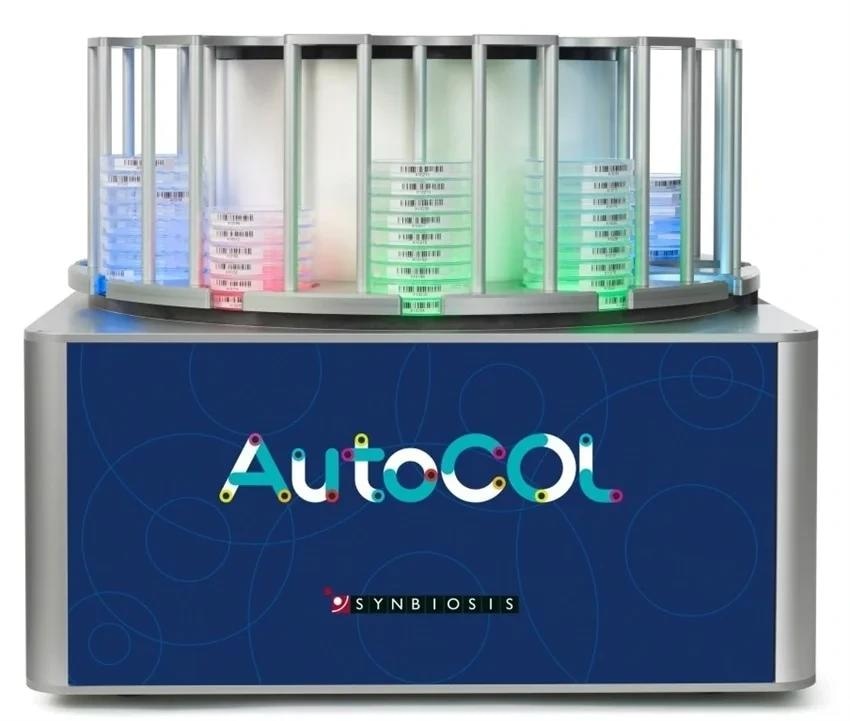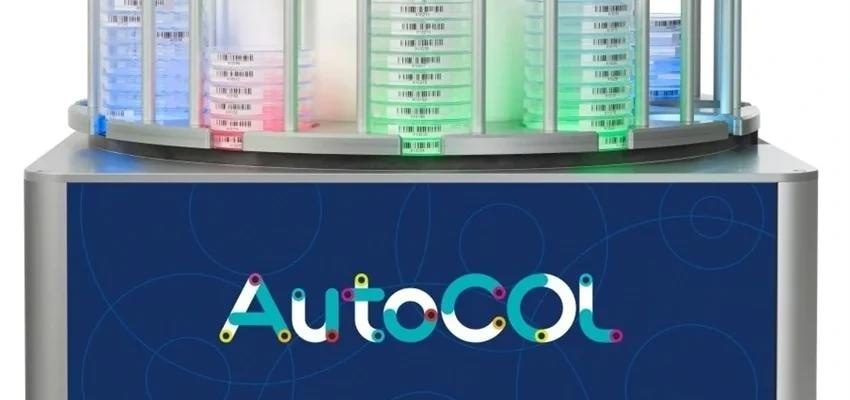 insights from industryRichard EdridgeSynbiosis Projects, and Sales ManagerSynoptics
insights from industryRichard EdridgeSynbiosis Projects, and Sales ManagerSynopticsIn this interview, NewsMedical speaks with Synoptics about AutoCOL, a completely automated colony counting system for fully traceable colony counts with every use.
What is microbial colony counting?
Microbial colony counting, commonly known as colony counting, is a technique used to estimate the number of microorganisms present in a sample.
How is colony counting used, and what can it tell us?
Colony counting is crucial to various applications, including environmental monitoring, food safety testing, pharmaceutical quality control, and research. The information this provides allows us to determine the concentration of these organisms within the products we use and consume.
Colony counting can increase the quality of products such as paints, cosmetics, and medicines when used correctly. The ability to quantify these incredibly small and seemingly invisible organisms and take corrective action allows us to extend the shelf life of food products and even avoid complications from medical procedures.
How has the technology for colony counting changed over the last decade?
With advancements in digital technology, lenses, and computational power over the last decade, the capabilities of colony counters have significantly expanded, allowing for higher-resolution images capable of resolving objects in the microns to be analyzed in seconds. In the past, these processes were only possible with expensive equipment such as supercomputers and high-precision niche cameras and optics.
What are the advantages of automated colony counting?
Automated colony counting offers several advantages over manual counting methods, such as timesaving, increased accuracy, consistency, throughput, traceability, advanced analysis, and reduced fatigue/eye strain which is often overlooked.
When were automated colony counting systems first developed, and how have they advanced since then?
The first devices that assisted with colony counting were developed around the 1960s. The devices were basic and only featured a petri dish holder and light source. It is interesting to note that devices like these are still popular today as a cheaper alternative to semi/fully automated devices.
However, as technology has progressed, numerous manufacturers have developed their own automated colony counting systems, incorporating advanced technologies to further improve the capabilities and performance of these instruments.
What is AutoCOL?
The AutoCOL, developed and manufactured by Synoptics Ltd, is an advanced automated colony counting system designed to revolutionize the process of microbial colony analysis in microbiology laboratories.
With its state-of-the-art image analysis technology, AutoCOL streamlines and enhances the accuracy of colony counting on agar plates, significantly improving laboratory efficiency and reducing the potential for human error. Combining sophisticated hardware and powerful software algorithms, it provides a comprehensive and reliable solution for colony analysis.

The AutoCOL. Image Credit: Synoptics
What are some of the advantages of this system over similar technology?
The AutoCOL is designed to be versatile and adaptable to different laboratory workflows. It supports multi-batch processing, meaning that all types of agar can be analyzed within a single run, thus optimizing throughput and efficiency.
The system can also integrate with laboratory information management systems (LIMS), enabling seamless data transfer and integration with existing laboratory processes. Furthermore, the AutoCOL is designed with user convenience in mind.
The system's intuitive software interface ensures ease of use, allowing laboratory technicians to quickly familiarize themselves with the system and perform analyses with minimal training. Devices with the capabilities of the AutoCOL are usually large freestanding devices that take up valuable floor space, but what makes the AutoCOL so impressive is that not only can it automatically process around 1000 plates in a single shift, but all of this ability/power is packed into a benchtop device.
To the best of our knowledge, there is no other benchtop device with these capabilities putting the AutoCOL in a class of its own.
What fields will benefit the most from AutoCOL?
The AutoCOL can be used in any field where automating colony counting would be time and cost-saving. So far, a wide range of customers have benefited from this device, and the list keeps growing.
What are some of the applications of the AutoCOL automated colony counting system?
The AutoCOL can process any variant of pour plates, spiral plates, and, in the near future, inhibition zones, SBA, OPKA, AMES, and more.
How user-friendly is this technology?
Everything about the AutoCOL software has been created with user experience at the core of the design. The software is intuitive, requiring minimal user input to obtain the desired results. We have streamlined the software to make user management, traceability, and sample review fast and easy to perform while maintaining functionality.
About Richard Edridge
 Richard Edridge is the Projects and Sales Manager at Synbiosis, where he has been an integral part of the team for the past five years. With a background in Biological Sciences and computing, Richard's expertise lies in developing science and technology to meet customer needs.
Richard Edridge is the Projects and Sales Manager at Synbiosis, where he has been an integral part of the team for the past five years. With a background in Biological Sciences and computing, Richard's expertise lies in developing science and technology to meet customer needs.
At Synbiosis, Richard primarily focuses on driving product and process advancements. His market insights and customer-centric approach have led to the successful launch of several innovative products. As the Sales Manager, Richard meets with customers globally. He excels at building strong relationships with clients and managing custom projects, ensuring devices meet their specific needs.
Beyond his work at Synbiosis, Richard remains committed to continuous learning, staying up to date with the latest developments in both biological sciences and computing by participating in conferences and industry events.
About Synoptics Ltd
Synoptics is a prominent Cambridge-based company that has been at the forefront of manufacturing scientific-grade digital imaging systems, water purification systems, and vacuum ovens for over 30 years. The company is comprised of three divisions: Syngene, Synbiosis, and Fistreem, each specializing in specific areas of expertise. With a strong commitment to innovation and quality, Synoptics has established itself as a trusted provider of cutting-edge solutions in the scientific research and laboratory equipment industry.
Sponsored Content Policy: News-Medical.net publishes articles and related content that may be derived from sources where we have existing commercial relationships, provided such content adds value to the core editorial ethos of News-Medical.Net which is to educate and inform site visitors interested in medical research, science, medical devices and treatments.
